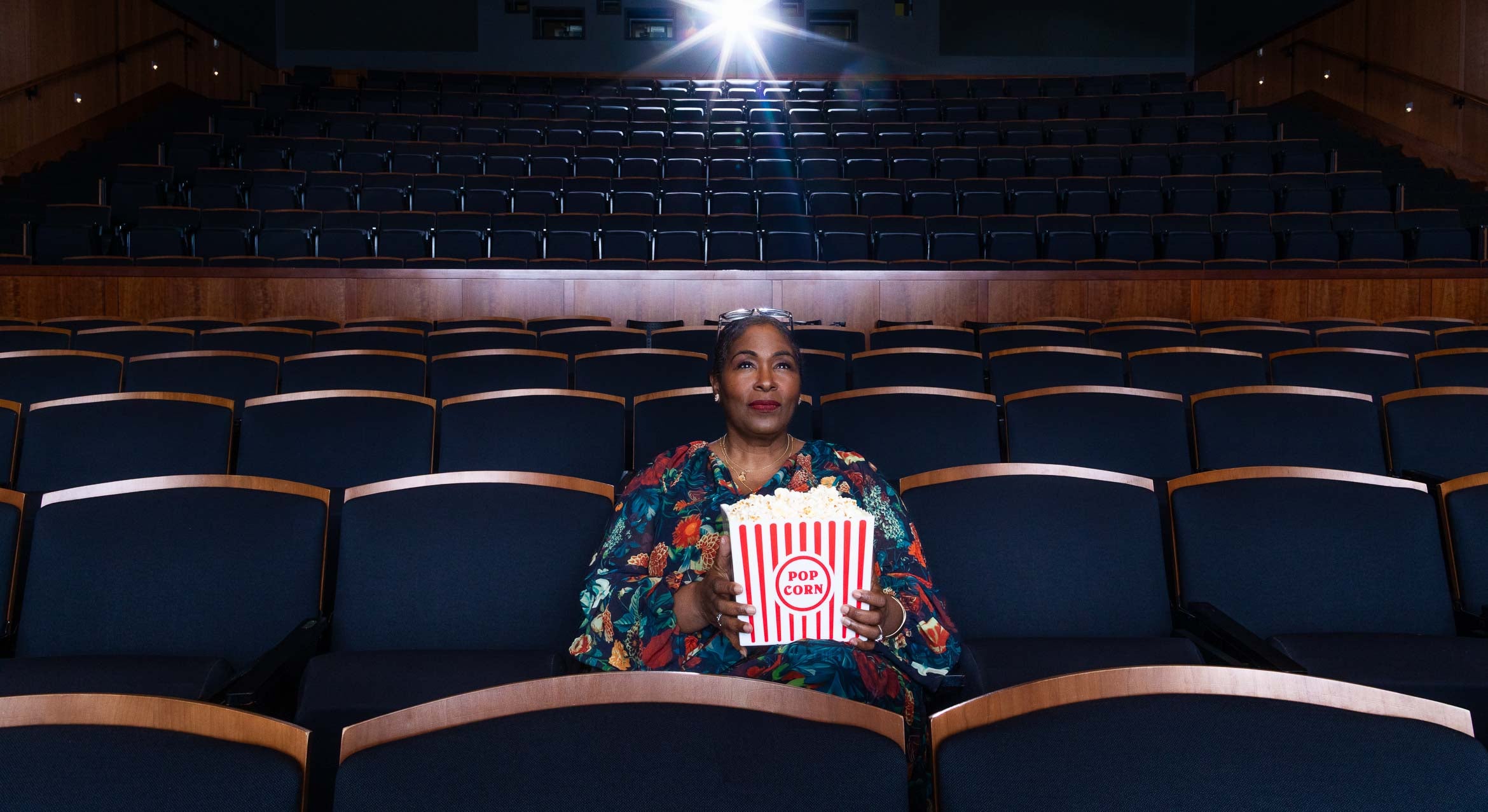It is a property unique to the minds of human beings, so far as we know, the ability to think beyond the bounds of
the real world and dream of fictitious ones.
It is called the imagination and it is expressed in countless ways, from the idle daydreams of children to the profound writing, painting and musical composition of the world's greatest artists.
Any list of history's most famous names contains many -- Romeo, Scarlett O'Hara,
Hercules, ... perhaps the Mona Lisa -- conceived solely of an artist's imagination.
Human imagination will be both probed and celebrated at a conference titled, "Imagination and the Adapted Mind: The Prehistory and Future of Poetry, Fiction and Related Arts" to be held Thursday through Sunday this week in UCSB's McCune Conference Center.
The conference is open to the public and without charge.
Making presentations will be an international field of scholars, many of them among the leaders in their areas of study.
"We managed to get everybody we wanted," said UCSB English Professor Paul Hernadi, who organized the multi-disciplinary conference with Psychology Professor Leda Cosmides and Anthropology Professor John Tooby.
"Everybody was very enthusiastic about coming and exchanging views on this subject. Many of them are internationally known.
And we got some up-and-coming people, too, some future stars."
The conference will be of interest to anyone
who appreciates the arts, Hernadi said.
"We'll be discussing research into the past of the arts and making some cautious predictions about the future and their continuing human significance," Hernadi said.
Tooby agreed.
"There is a lot here for curious people who are not academics," he said. "The questions participants will be addressing are the following:
Humans in all cultures, no matter how simple, have an appetite for fiction and the arts. ... Why is this? Why did these interests and capacities evolve?
"In particular, the arts seem to be useless in a practical sense, and evolution tends to build things only to the extent they are useful for the species, so there is a profound mystery here.
"Moreover," Tooby said, "no other animal species creates art."
The conference begins at 1:30 p.m. Thursday with opening remarks by UCSB Executive Vice Chancellor Ilene Nagel, College of Letters and Science Provost Everett Zimmerman, Hernadi, Cosmides and Tooby.
At 2 p.m., the conference begins in earnest with presentations by Tooby, "The Evolution of Decoupled Cognition," and University of Maryland professor Mark Turner, "The Literary Mind."
In his talk, Turner will argue that the literary mind, in which things like talking animals and genies are possible, is fundamental example of how the human mind works.
At 4 p.m. Thursday,
Alan Leslie, a cognitive science professor at Rutgers University, will deliver his talk, "Cognition and Pretense."Hernadi will follow with "Why Is Literature: Some Co-evolutionary Implications of Imaginative Worldmaking," in which he asserts that literary tendencies in early peoples may have made them better able to reason, solve problems, cooperate and survive to pass those genetic tendencies along to progeny.
The rest of the schedule:
·9:30 a.m., Friday
Pascal Boyer, Centre National de la Recherche Scientifique, Lyon, France. "Evolutionary Psychology and Proximate Cognitive Explanations of Religious Concepts."
Ellen Spolsky, professor of English, Bar-Ilan University, Israel. "Forbidding Art: The Problem of Transfiguration as Tool Use."
·2 p.m. Friday
Bert O. States, professor of drama, UCSB. "Dreaming: The Royal Road to Metaphor."
Eve Sweetser, professor of linguistics, UC Berkeley. "Blended Spaces and Frames: How Similar is Meaning-'Freeloading' in Everyday Language and Poetry?"
·4 p.m. Friday
Eleanor Roach, professor of psychology, UC Berkeley. "If You Depict a Bird, Give It Space to Fly: Eastern Psychologies, the Arts, and Self-Knowledge."
Patrick Colm Hogan, professor of English, University of Connecticut. "Remorse and the Ambiguities of Heroism: Ethical Conflict in the Generation of Narrative from Emotion Prototypes."
·9:30 a.m. Saturday
Steven Pinker, professor of cognitive science, MIT. "To Delight and
Instruct: Fiction as an Adaptation and as a By-Product." Pinker is author of popular science bestsellers
"Language Instinct" and "How the Mind Works."
Gabriele Schwab, professor of English, UC Irvine. "Transference and the Cultural Imaginary."
Porter Abbott, professor of English, UCSB. "The Bonding of Narrative and the Literature Effect."
·2 p.m. Saturday
Kay Young, professor of English, UCSB, and Jeffrey Saver, professor of neurology, UCLA. "The Neurology of Narrative."
Tamar Szabo Gendler, professor of Philosophy, Syracuse University. "The Puzzle of Imaginative Resistance."
Lisa Zunshine, professor of English, UCSB. "A Modest Proposal and Metarepresentationality: Gauging the Truth-Value of Narrative."
·9:30 a.m. Sunday
Ellen Dissanayake, Seattle-based author. "Becoming Homo Aestheticus: Sources of Aesthetic Imagination in Mother-infant Early Interactions."
Francis Steen, professor of English, UCSB. "The Learning-mode Hypothesis of the Literary Imagination."
Leda Cosmides, professor of psychology, UCSB. "Cognitive Maturation and the Evolution of Aesthetics."
·2 p.m. Sunday
Summary and discussion



